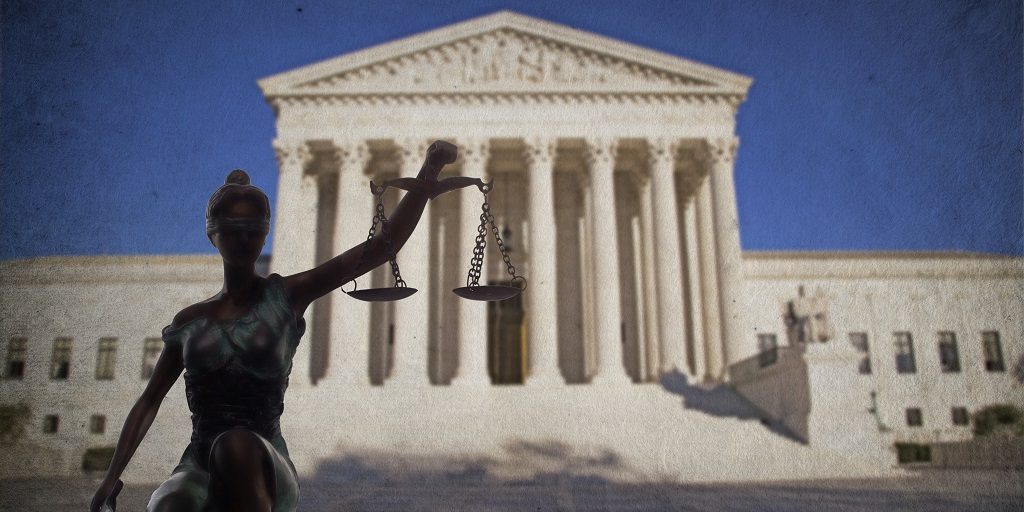The United States Supreme Court will face challenging questions impacting immigration law as it begins considering cases in its October 2021 term. The Court’s decisions on these cases will impact access to:
- Federal court review over certain immigration judge decisions.
- Bond hearings for certain noncitizens who have spent months in detention.
- Personal liability and damages for federal officers’ unconstitutional actions.
The Court also will consider whether states can defend immigration policies that the federal government will no longer defend.
Here is a run-down on some of the immigration-related cases we know will be before the Court this term:
Patel v. Garland
On December 6, the Court will hear argument in Patel v. Garland.
In Patel, the Supreme Court will decide whether federal courts can review an immigration judge’s discretionary decision about whether a noncitizen is eligible for certain types of immigration relief, such as adjustment of status or cancellation of removal. The immigration statute prohibits courts from reviewing the final discretionary decision to grant such relief. But whether someone is eligible for relief and whether someone will be granted relief are two different questions.
Charges of whether a noncitizen is removable in the first place can overlap with whether they are eligible for relief. Because of this, if the Supreme Court sides with the government, Department of Homeland Security officials may be able to limit review of a noncitizen’s case based on the initial charging decision an officer makes.
Access to judicial review of lower court decisions is a major pillar of the United States’ commitment to due process. It should not be undermined based on potentially arbitrary charging decisions.
Johnson v. Arteaga-Martinez and Garland v. Aleman Gonzalez
On January 11, the Court will hear argument in a pair of cases addressing access to bond hearings for noncitizens after six months in detention.
In Johnson v. Arteaga-Martinez and Garland v. Aleman Gonzalez, the parties disagree over whether a mandatory detention statute allows for the opportunity for a hearing about release on bond after six months.
Significantly, the Supreme Court previously ruled that mandatory detention lasting more than six months cannot be presumed “reasonable.” A hearing before a neutral judge to determine whether further detention is necessary after six months is in line with national values of fairness and due process.
Egbert v. Boule
The Court will also hear Egbert v. Boule this term, which asks whether a federal officer may be held personally responsible for damages—under a case known as Bivens—when the officer violates the Constitution in an immigration-related action.
In this case, Mr. Boule argues that Border Patrol’s use of force was excessive when they attempted to raid his bed and breakfast near the Canadian border. The federal courts generally have rejected arguments to apply Bivens to new areas of law, particularly in the immigration context. But here, Mr. Boule argues for Bivens to apply because of the specific facts of his case.
If the Supreme Court agrees, federal officers may be able to held personally liable for damages when they commit constitutional violations.
Arizona v. City and County of San Francisco, California
Finally, in Arizona v. City and County of San Francisco, California, the Supreme Court will consider whether states have the right to defend a government regulation that the United States has stopped defending.
Specifically, the states of Arizona, Alabama, Arkansas, Indiana, Kansas, Louisiana, Mississippi, Montana, Oklahoma, South Carolina, Texas, and West Virginia want to be able to defend the “public charge” regulation, even though the federal government is no longer defending it and a federal court has vacated the regulation.
The Trump administration issued the public charge regulation, which allowed the government to make it harder for immigrants to receive green cards or visas based on receiving certain public benefits. Federal judges in various courts blocked the public charge regulation from going into effect, and the Trump administration challenged those decisions.
Then, in March 2021, the U.S. Department of Homeland Security issued a statement saying it would no longer defend the regulation because it was “neither in the public interest nor an efficient use of limited government resources” and it was “not in keeping with our nation’s values.”
The Court’s October 2021 term runs from October 2021 through January 2022. Although we will not know the outcomes of these cases for months, one thing is certain: the Supreme Court’s decisions are binding on courts across the nation and will impact immigration cases for years to come.
FILED UNDER: Supreme Court


